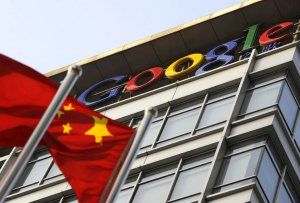
What's the greatest potential threat to Britain's national security in the early 21st century? Apparently, it's no longer armed conflict with a hostile power—it's cyberwarfare, according to the first published report, released this week, from Britain's newly formed National Security Council. Forget the old simplicities of the Cold War era, where state enemies were easy to define: the country now faces a "different and more complex range of threats from myriad sources," the council said. And at the head of the list of dangers is the "Tier One" risk of cyberwarfare.
While the council's conclusion may be worrisome for the public, it's good news for the intelligence agencies—and also perhaps for a cash-strapped government forced to reassess its defense priorities. On the basis of the report, the U.K.'s spooks have been promised an extra $760 million to beef up cyberspace operations. At the moment, Britain's cyberdefenses are in the hands of a 15-person Office of Cyber Security. Even with the support of the Government Communications Headquarters (GCHQ), the vast agency that collates cyber-intelligence, the country's resources are woefully inadequate to deal with the growing threat.
On Tuesday, Prime Minister David Cameron assured Parliament that the extra cash "will significantly enhance our ability to detect and defend against cyberattacks and fix shortfalls in the critical cyber-infrastructure on which the whole country now depends."
Britain's reprioritizing of cyberdefense comes not a moment too soon. The danger of cyberattack is now widely recognized by advanced societies, which are wholly dependent upon computer networks for day-to-day functioning as well as for national security. Attacks on computer infrastructures have already proven to be quite effective: in 2007, Russia allegedly used cyberwar tactics to disrupt neighboring Estonia (much of whose government is run online) by swamping its networks with e-mails; and just last month, Iran revealed that its nuclear program had been severely disrupted by the Stuxnet computer virus, possibly a plant by Israel.
Most recently, GCHQ boss Iain Lobban warned—last week—that 1,000 cyberattacks are being detected each month on U.K. government networks, sent by anyone from malicious cranks to possible terrorists. The threat "goes to the heart of our economic well-being and national interest," he said. And with London hosting in two years' time the summer Olympics—always an attractive target for terrorism in any form—Britain has particular reason to worry.
Yet however grim the report, it may turn out to be a timely boon for Cameron's government. Faced with a massive budget deficit, the prime minister is set to announce widespread cuts in public spending today—and the defense department has not been spared the ax. As part of a separate review of defense policy, Cameron announced a package of cuts Tuesday that will see the Army lose 7,000 personnel over five years, as well as 40 percent of its tanks and 35 percent of its heavy artillery. That's not counting further reductions in the Royal Air Force and Navy. Selling these cuts to voters will be easier if the public can be persuaded that the real danger to Britain can't be countered by conventional shells and bullets.
Indeed, the National Security Council report seems to suggest that it may be technical expertise, not weaponry or the size of armies, that will matter most in the future for national defense. In his speech to Parliament, Cameron pledged a "step change" in security strategy and a new focus on meeting "unconventional threats." If that makes military sense, it's also cheaper—techno-spooks will cost less to recruit and train than building new warships, and they may end up being more effective in protecting Britain.
Uncommon Knowledge
Newsweek is committed to challenging conventional wisdom and finding connections in the search for common ground.
Newsweek is committed to challenging conventional wisdom and finding connections in the search for common ground.





